#napoleon’s first Italian campaign
Explore tagged Tumblr posts
Text
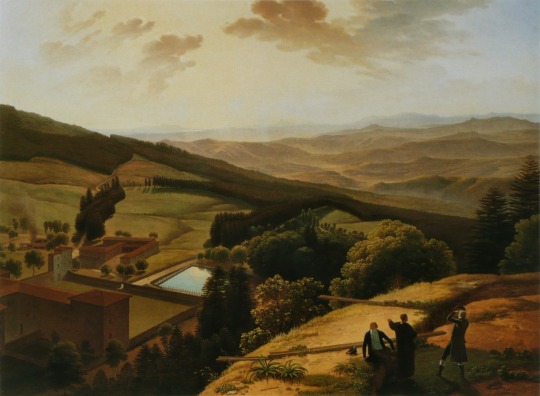
The Monastery of Vallombrosa and the Arno Valley Seen from Paradisino, c. 1797
Louis Gauffier, French
#art#Italy#French art#napoleonic era#18th century#late 18th century#first french empire#french empire#french#Italian#monastery#Louis Gauffier#gauffier#scenery#scenic#scenic art#first Italian campaign#napoleon’s first Italian campaign#napoleonic wars#napoleonic
26 notes
·
View notes
Text
I’m an Appiani fan myself (my background pic is of Napoleon by Appiani)

a sketch of napoleon by andrea appiani that I’d not seen before, from a book I borrowed. have doubts about this actually being from the battle of lodi because napoleon still had the long hair then and it was so early into his career
#book pic#Lodi#appiani#Andrea appiani#pretty#napoleon bonaparte#Napoleon#battle of lodi#Napoleon Bonaparte at Lodi#first Italian campaign#Napoleonic#napoleonic wars#frev#french revolution#France#Italy#Italian art#napoleonic era#illustration#art#napoleon portrait
71 notes
·
View notes
Note
Don't tell my friend that I did not sleep immediately (she will scold me XD). But what is Napoleon and Junot about? Gib their interactions, their history, the tension, their secrets, what you thought about them, what is good and bad about them, headcanons, some things that you love about them, anything that will save my curiosity before I go to sleep in 4:30 am 👀
That is all. Have a nice day/evening 😌
HELLO!! sorry for my late reply I have the cold and I was figuring how to write this without sounding too crazy 😭😭 thank you @whatever-whatsoever for reminding me to check my inbox 🤩 YESSS NAPJUNO ASK!!!! THANK YOU ❤️❤️ I'll have to give a super abbreviated version because they had so much history *sniff* 🥺
I may yap more about my personal head canons and why I love them in a separate post hehehe👅
disclaimer: I don't claim to be objective or an historian as this is very napjuno-biased :P English is not my first language so there will be many grammatical mistakes😭
I feel like I should first mention that Napoleon and Junot had a long history of correspondence throughout their lifetime. And Junot kept every. single. letter Napoleon wrote to him. Unfortunately none of these letters exist anymore because Napoleon sent a lackey to have them burned the moment Junot committed suicide. (I WILL NEVER FORGIVE NAPS FOR THIS 😭) so most of what we know about their relationship is secondhand from Junot's wife, Laure Junot's (Duchesse d'Abrantes) memoirs. She's also not the most reliable person so it's possible she might heavily exaggerated on some stuff
As for the letters, it's always been up for debate why Napoleon wanted them gone but my personal headcanon is they must've been written in a very romantic tone... and Napoleon was so heavily trying to suppress his feelings for Junot and burning those letters was a way of burying their relationship once and for all
OKAY, SO A BRIEF HISTORY ON NAPJUNO!!
Junot's fated meeting with Napoleon began in 1793! He was already promoted to a segreant when they met and Napoleon was already a General at the age of 24(!). It was during the Siege of Toulon that Naps had asked for someone who had beautiful handwriting to dictate a letter and Junot volunteered to write what he dictated before a cannon fire sprayed it with dirt. Naps was so impressed by his coolness that he made Junot his secretary and Aide-de-camp, and soon they'd become inseparable
soon after Toulon, Napoleon was accused of treason for his connections to Augustin Robespierre and was jailed. Junot , of course freaking out about this wrote him letter to offer an escape but Naps declined.
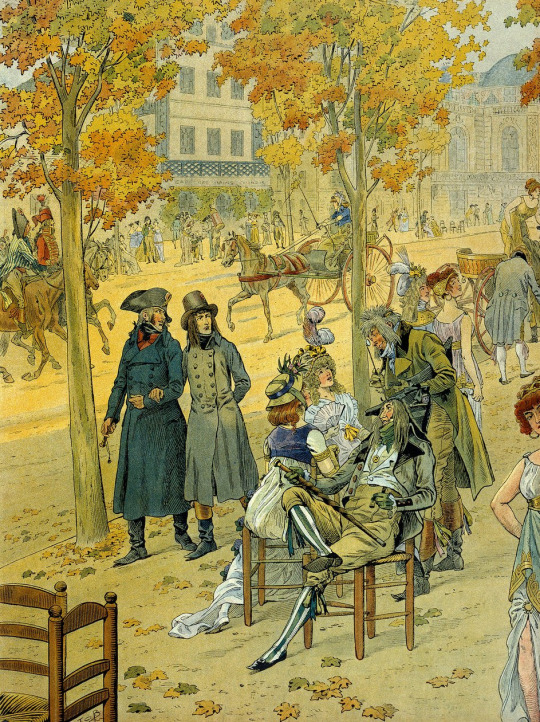
^ this illustration by Jacques Onfoy de Bréville represents one of their "leisure moments" together circa 1794-95
so after a little while Napoleon got married and found his fortune, Junot continued to follow him to his legendary Italian and Egyptian campaigns. In Egypt, he was promoted to General but he was actually not too happy with this since this means he'll be away from Napoleon often. There's also this famous (or infamous?) incident where he challenged General Lanusse to a duel ,simply because he opposed Napoleon's leadership , with this words :
«We must fight; it is essential that only one of us survive. I hate you because you hate the man that I love and admire as much as God, if not more»
sounds like a chivalric romance doesn't it? :3 It was also during this campaign there were rumours within the army comparing Naps and Junot to "Hadrian and Antinous" . of course Junot does nothing to dispel those rumours 🤓 Poor guy got wounded in the stomach and Naps didn't visit him until the last minute.
Napoleon wasn't able to take Junot with him when he left Egypt and by the time Junot made it back to France in 1800, Napoleon was already First Consul and the power differences between them already put a strain on their relationship. This was further exacerbated once Naps became Emperor.
When Naps sent Junot to Portugal , he wrote a bunch of desperate letters begging him to reappoint him as his aide-de-camp again and Napoleon once confronted to Junot's wife about the letters he wrote to him (I'm like 99% sure it probably sounded more romantic than the ones he wrote to her) . it got to the point that Laure Junot ahd to admit that Junot possibly loved Napoleon more than her and their children.
Junot was often sent away from Napoleon during from like c. 1806-1810ish? and didn't interact much except by correspondence (I think) I'm going to skip over the Portugal /Spain period
Okay so by the Russian Campaign of 1812, Junot pretty much fell out of favour from Naps and the consequences of Junot's actions almost completely destroyed their relationship. By this time period, Junot's mental and physical health was very, very fragile from his campaigns in Portugal & Spain and Napoleon was no longer the Napoleon he knew back in their youth. Napoleon was furious and even shamed him on the military bulletin. Junot was devastated at this and the thought of losing Napoleon's friendship was unbearable after 20 years of being devoted to him.
After he returned to France from Russia, there are several anecdotes mentioning how he would wanderlessly mutter out loud that “The Emperor no longer loves me” in his apartments😭 Napoleon's love for him was all that mattered😭😭💔
There's this scene where Duroc (Napoleon's Grand Marshal of the Palace) and another friend visited Junot to comfort him and this happened:
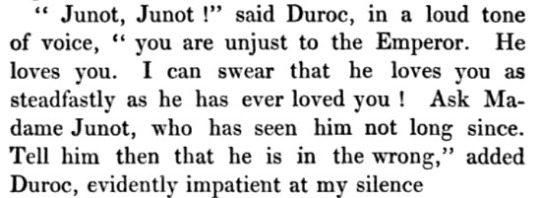
Junot obviously didn't believe the Emperor still loved him of course💔

Soon after spending some time resting and with his family, he was appointed Governor of Illyria. (I think Naps sent him there because he wanted him out of France but Idk). His insanity finally set in and there's this infamous incident where Junot attended the ball completely naked except for his medals and hat and his battle wounds were on full display...
Soon after that, he had to be forcefully be sent back to his father's home in Montbard. It was there where he committed suicide by jumping out the window.
💔
Junot's last letter to Napoleon is heartbreaking by the way....
“I who love you with the affection of a savage for the sun, I who am entirely yours. Well then: This eternal war that we must fight for you, I WANT NO MORE OF IT! I WANT PEACE! I want finally to repose my tired head, my sore limbs … to enjoy that which I earned … with my BLOOD! The blood of an honest man, of a good Frenchman, of a true patriot. I therefore ask, at last, for that tranquility that I earned through twenty-two years of effective service and seventeen wounds from which my blood has flowed for my country, and for your glory.
Like I mentioned in the beginning, soon after the news of Junot's demise reached the public, Napoleon immediately sent someone to his house in Paris where his wife and brother-in-law were at and forcibly searched through Junot’s home to seize and burn his letters.
Oh yeah there's more but I'll leave it at that for now </3 LIKE WHAT THE HELL NAPS WHY DID YOU BURN THE LETTERS 😭😭Like they must've been fucking crazy man,,, omg sorry this keeps me up at night 😭
they make me so

Junot's ending was sooo tragic.... he was definitely a Greek tragedy-esque figure😢 He possibly died believing Napoleon hated him when that wasn't the case. Napoleon, despite reprimanding Junot very harshly for Junot's actions (non-actions?) during the Russian campaign, he still had a soft spot for him.
I also think of like how his life would've been better without meeting Napoleon. But also thinking again how much Junot treasured his meeting with Napoleon.... ough they're so painful sdkjskdljdhljhdjfhdkjhfdj excuse me while I combust
NapJuno was basically like painful unrequited love slow burn over 2 decades . Or maybe it wasn't completely unrequited? I like to think Napoleon was in denial and constantly tried to suppress his feelings for Junot 😔😔😔 anyway Junot was so delulu... (he's my precious delulu cat) he kept hoping Napoleon would still love him like he used too pre-Emperor days. Of course those days will never come back. I guess he was always living in the past while Naps moved on 🥲💔
well even if Napoleon doesn't love him at least I do 😤
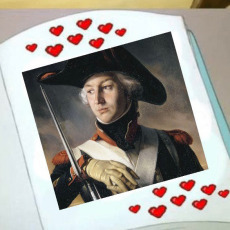
as my friend @ promises-of-paradise once said, I think Junot was almost definitely romantically obsessed with Napoleon. Like actual romantic love (I'm not even being delusional this is what I truly believe). Whether they actually did anything together is up for debate, but it’s clear that Junot’s feelings for Naps were a lot more intense than a regular friendship.
also I highly recommend reading these posts regarding Junot and NapJuno's relationship:
The NapJuno bible of course: https://erenow.org/modern/napoleonic-friendship-military-fraternity-intimacy-and-sexuality/4.php
BTW THERE'S A NAPJUNO RPF WRITTEN AND PUBLISHED IN A FRENCH MAGAZINE BACK IN 1926!!!! I JUST NEED TO FIND THE LINK (it's also in French)
and Laure Junot's memoirs! it's available on the internet and she (and imo rightfully) suggests Napoleon and Junot were possibly incredibly intimate during their broke days. Girl was the OG napjuno shipper istg
~~
If any of my fellow NapJuno fanatics want to add info about them more please do so!!! I'm probably forgetting some stuff 😭
40 notes
·
View notes
Text
Junot and... Hippolyte Charles?!

-From the book "La Generale Junot, Duchesse d'Abrantès, d'après ses lettres, ses papiers et son 'journal intime' inédits" by Joseph Turquan, a biography of Laure Junot featuring previously unpublished information given to the author by Georges Aubert, Junot's grandson.
The book is from 1901, and therefore is a little dated in some regards, but overall creates a good portrait of Laure and Jean-Andoche Junot.
One day [Junot] introduced [Laure] to Mr. Hippolyte Charles, former orderly officer of Adjutant General Leclerc, brother-in-law of the First Consul.
This Mr. Charles would undoubtedly not have arrived at any kind of position by himself; by women, or rather by a woman, he succeeded. We know that he was Madame Bonaparte's lover in Milan. The outraged husband eventually found out and kicked him out of the army. Returning to civilian life, Mr. Charles continued to see his mistress while Bonaparte was in Egypt*. He was now involved in business, military supplies and had made a tidy fortune**. Junot had known him in Italy***, then had found him in Paris and a strong friendship had developed between them.
It would have been convenient for him not to get involved with the man who, he knew, had been too good with his general's wife. Bonaparte, who had suffered greatly in his love and self-esteem from Josephine's infidelities, was not likely to be inclined to look favorably on such a friend as his aide-de-camp. Junot should have understood this and, if only out of convenience, not become involved with him. His wife was still too young to make him aware of his lack of tact. But this friendship was probably one of the causes why Napoleon, who grew pale when by chance he encountered Mr. Charles in the street and reproached Junot for only ever making friends with his enemies. Mr. Charles, in his thinking, was included in this word with the royalists of the Faubourg Saint-Germain. But Junot, thoughtlessly, did not understand this.
Perhaps, however, he believed himself bound by honour not to sacrifice a friend to the friendship of the great man whose aide-de-camp he was and would have considered it cowardice to sacrifice him to the one who gave him rank, honours and fortune. He therefore continued to see him, and General Bonaparte had the great discretion not to let him say anything about it. Duroc, however, should have spoken to him about it. Perhaps he did, but Junot was not easy to restrain and, in everything, did as he pleased.
*(I must say that accusing Charles of sleeping his way to the top seems a bit harsh as he's a historical figure we know relatively little about, but that's just my opinion).
**according to some rumours, Hippolyte Charles made this money through war profiteering.
***allegedly during the Italian campaign Junot found out about Hippolyte Charles and Josephine, which he initially kept a secret but later confessed to Napoleon on the Egyptian campaign. But due to a lack of sources the details are murky, we know nothing of the circumstances that led to Junot revealing what happened and why he did it.
#junot monday#jean andoche junot#laure junot#napoleon#napoleon bonaparte#napoleonic era#napoleonic#hippolyte charles
30 notes
·
View notes
Text
This is from a novel about Napoleon's first Italian campaign. He's writing a letter to the Directory after hearing that they intend to divide his army and put Kellerman in charge of the other half. His cynical thoughts are in brackets. It's pretty funny.




The Road to Glory: A Biographical Novel of Napoleon by F. Britten Austin, 1935.
18 notes
·
View notes
Text
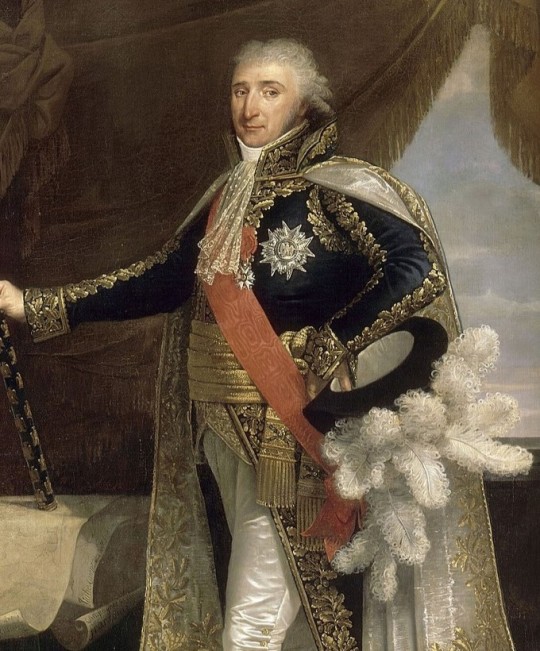

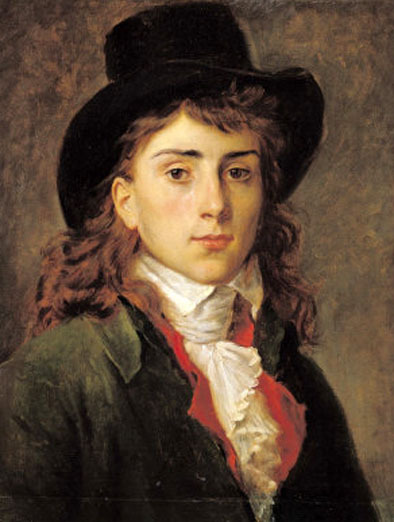
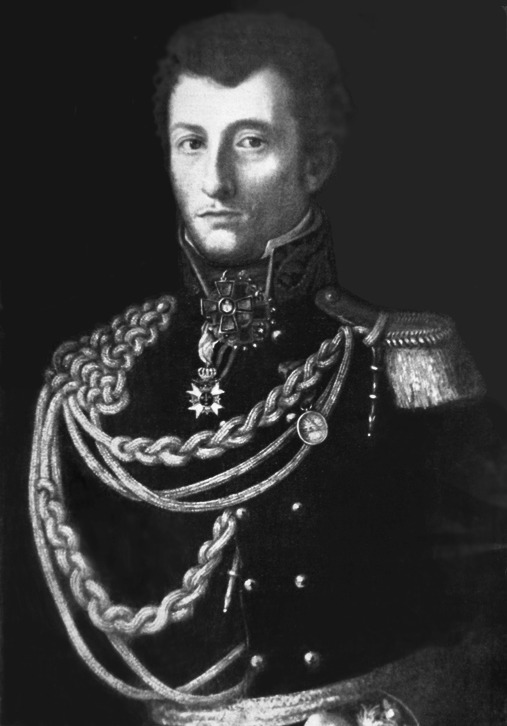

*aka "who are you most shocked/surprised/upset/aghast that we lost in the first round?"
Propaganda for Each:
Augereau:
“dude’s backstory is a fucking dungeons and dragons adventurer backstory, duellist who had to flee France after killing an officer, adventurered in Prussia and Russia and duelled and fought, also cannot physically stop swearing, what a man”
“Man of many talents even before the Revolution: noted swordsman and duellist, so talented that he accidentally killed a superior officer. Joined armies all over Europe, then taught fencing and dancing after he settled. Eloped with his first wife, whom he loved and respected. Partly responsible for victories at Castiglione and Arcole during the Italian campaign. Tied himself to a horse to lead his corps on Eylau (very metal). Has a very cool portrait where he points at a portrait of himself at Arcole
Gogol:
[no propaganda submitted]
Gros:
One of Napoleon’s main painters. Pioneer of French Romanticism. Inspired many artists such as Delacroix and Géricault. He was very pretty.”
Clausewitz:
"what could possibly be sexier than a prussian uniform and a lasting impact on military theory?”
Czartoryski:
"Decided that the way to free Poland was by having a threesome with Alexander and his wife.”
#napoleonic sexyman tournament#naps ironically lost by more than a percent#although coming back to win a redemption poll was so on brand for him that I almost tweaked the rules for it
47 notes
·
View notes
Text
For shits and giggles, I fed the idea of Napoleon’s Marshals done Bridgerton-style into ChatGPT. It started kind of normal, and then went further off the rails deeper I got into the first season. I felt this gem should be shared with everyone. Enjoy. I will be posting one episode a day, if I can remember it.
Title: The Marshal’s Court
Genre: Romantic Dramedy (In the style of Bridgerton)
Setting: The First French Empire, Napoleon’s Marshals as the central characters
Season 1, Episode 1: “The Batons and the Blows”
Episode Synopsis:
The episode opens in 1804, a glittering ceremony at the Tuileries Palace, where the newly created Marshals of the Empire gather to swear their oaths and receive their Marshal’s Batons. This distinction marks their official ascent to the highest ranks of Napoleon’s army. Most of these men have fought together for years—some since the Italian campaigns—bound by loyalty, shared triumphs, and bitter rivalries.
Opening Scene:
The lavish atmosphere hums with tension. Each Marshal’s uniform is pristine, their batons shining in the candlelight as they await their moment of glory. But beneath the surface, there’s more than just military ambition on display—old grudges, simmering jealousies, and complicated friendships run deep. The camera pans to Marshal Davout, standing stiffly near Murat and Bessières, already casting suspicious glances at Murat’s flamboyant attire.
Marmont, denied a baton, leans in to Junot, whispering, “If Bessières can be made a marshal, then anyone can.” The camera catches Bessières overhearing the remark, his face darkening with wounded pride. Junot smirks, but there’s something unsettling about his grin—hints of his impulsive, reckless nature already showing, though his more troubling mental decline remains subtle for now. The men are unaware that Napoleon himself watches them closely from a corner, ready to intervene in their personal lives as much as their professional ones.
Lannes exchanges a glance with Bessières, their once-close friendship clearly fractured, a remnant of the Consular Guard budget scandal that saw them at odds. Lannes’ temper is barely restrained as he grips his baton, every movement purposeful and aggressive, setting the tone for his character as a man of passion and action.
Meanwhile, fan-favorite moments develop:
• Murat swaggers with confidence, already half in his mind imagining himself as a king, while Bessières watches him with conflicted admiration. Fans begin noticing lingering glances between the two, the first on-screen hints of the clandestine romance that has been a subject of fan theories for months. The ship, known online as Bessimu, starts gaining traction.
• Ney, standing near Soult, mutters something under his breath about Soult’s ambition, adding fuel to their historically documented rivalry. Soult glares but remains silent, plotting.
Junot’s erratic behavior hints at future struggles. He interrupts a serious conversation between Davout and Masséna, challenging them to a random duel of wit that leaves everyone bewildered and concerned about his judgment.
As the ceremony draws to a close, Napoleon makes his rounds, offering calculated words of encouragement (and veiled meddling) to each Marshal. He gives Lannes a sharp look, clearly intent on sending him to Portugal soon, much to Lannes’ irritation. Napoleon is later seen commenting to Duroc, his loyal aide, that “These men will tear each other apart without me. Just as I planned.”
Fan Reactions:
The episode sends fans into a frenzy. The Lannes fan club, already upset over his eventual historical fate, celebrates his brash, sword-banging diplomacy. #LannesLives trends on social media, with fans demanding a fictional rewrite to spare him from his historical death. Bessimu shippers are overjoyed by the subtle but unmistakable romantic tension between Murat and Bessières, creating a storm of theories about where their storyline is headed.
Online debates about the accuracy of Marmont’s snark, the portrayal of Soult’s cunning, and Davout’s icy demeanor dominate forums, with some fans pointing out that the show has taken slight creative liberties, but to thrilling dramatic effect.
Historical Easter Eggs:
• Marmont’s bitter comment about Bessières’ promotion references real-life tensions in the ranks.
• The Lannes-Bessières fallout, stemming from the Consular Guard budget scandal, is rooted in true events and marks a key point in their strained relationship.
• Napoleon’s meddling in his marshals’ lives, especially his push for marriages of convenience, is a real-life tactic he used to secure alliances, adding layers of historical drama to the romantic subplots.
Next Episode Teasers:
• Murat is seen leaving Bessières’ tent at night, a secretive and tense interaction that leaves viewers speculating on how their relationship will evolve. Will Bessières continue to wrestle with his devout Catholic guilt, or will his heart take the reins?
• Lannes is summoned by Napoleon to discuss his new diplomatic assignment in Portugal. Will Lannes’ fiery temper clash with his new role, or will his sword-banging diplomatic style pay off?
• Junot’s mental decline begins to surface in more overt ways—he challenges Marmont to a duel in a fit of impulsive rage. How will his peers react as his once celebrated impulsiveness becomes more concerning?
• The brewing rivalry between Davout and Bernadotte reaches new heights as Bernadotte schemes to undermine Davout’s position. Sparks fly at a banquet where both men attend with their wives.
• Historical nod: The Marshal’s next military campaign looms, with the possibility of them fighting side by side—or against each other.
#napoleon’s marshals#ai hell#napoleonic era#napoleonic shitpost#napoleon bonaparte#the marshal’s court
13 notes
·
View notes
Text

"Victory belongs to the most persevering" - Nandopoleon Alonsoparte
+ First Consul Nandopoleon

Wow look I finally drew him properly! This was like the 2nd or so AU I've ever made, but honestly I feel so strongly about it that it's really intimidating to try and make a satisfying explanation post for it. I want it to be perfect ah. But I will one day! Maybe a web weave or smth in the meantime. But I digress. Napoleon Bonaparte = Fernando Alonso, please contact @/skitskatdacat63 for details.
In this painting I drew the uniform Napoleon wore during the Italian campaign in the 1790s, bcs I think it's so pretty, and not just the typical Napoleon outfit everyone knows(tho dw I'm in love with that one too.)
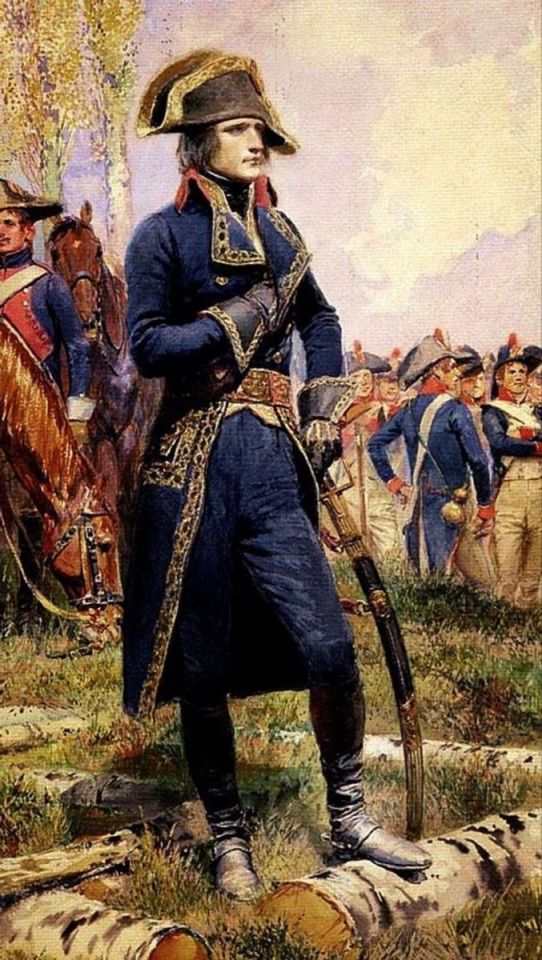

Though I will say, it was a bit weird drawing Fernando in navy blue(is this a sign for 2025?), so I had to draw him in the bright red First Consul uniform, to return some order to the world y'know


I ended up picking "victory belongs to the most persevering" as the Napoleon quote to use, but that was really hard to pick tbh. I literally have a whole folder of Napoleon quotes that remind me of Fernando LOL. Some others, to give you an idea:
"Glory is fleeting, but obscurity is forever."
"From triumph to downfall, there is but one step."
"Morality has nothing to do with such a man as I am."
"It requires more courage to suffer than to die."
Etc etc., again: I have a folder ;;;
I don't think this drawing was nearly as complicated as the Seb one, but for some reason it made me suffer more. I think you just get into this really intense mindset after drawing smth super detailed, and it's very frustrating. But I like it! His face was very confusing to me(the angle of the eyes), and then it randomly hit me how to draw it so that was cool. Look at him face :) handsome boy
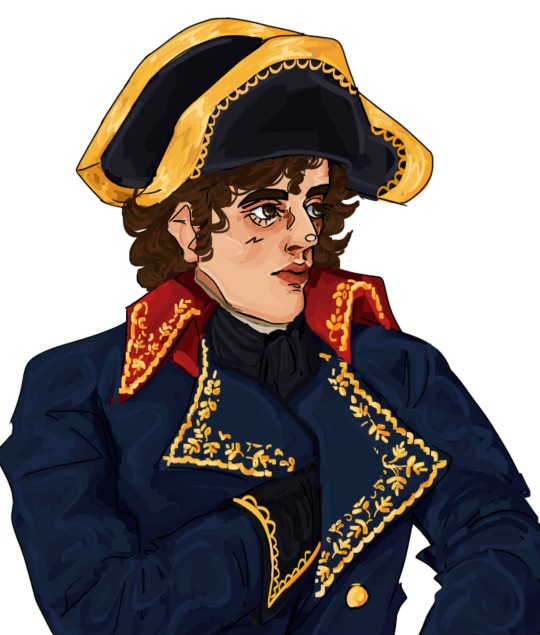
Also here's the process! I think I'm gonna try and draw something each weekend as a gift to myself after the school week(if I have actual ideas for it lol)
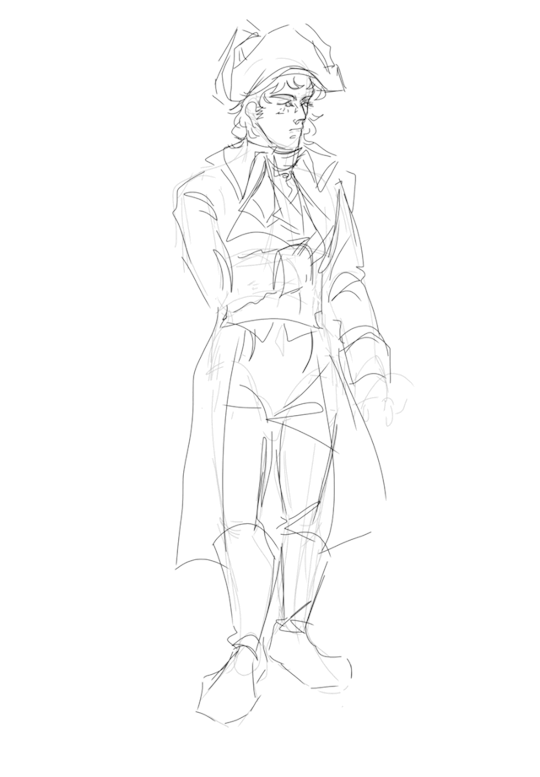
#lmao i think ive only talked in depth abt this au to two people?#well and harassing my parents with the parallel reasoning#i talked abt it in the read more but yeah ah this is extremely important to me#like just crucial characterization and historical implications and all that#so its smth i really hesitate to make a lore type post bcs it will never be perfect enough for me LOL#(i wanna read more actual napoleon literature to have better basis tbh)#i mean ask me if you have any questions cause i do see that this looks a bit crazy on the outside djfkkglv#actually the funniest part i will mention is that the napoleon tumblr fandom and our fernando fandom ARE SO SIMILAR#<- cofi knows. cofi understands. they literally talk abt him the exact same way we talk about fernando. its sooooo fun#cut from the same cloth and all that. but god i hope they never see this ill die im just a observer#f1#formula 1#fernando alonso#nandopoleon alonsoparte#<- yes i am extremely proud of that#catie.art.#fa14
35 notes
·
View notes
Note
Hi,
This question is about Napoleon’s relationship with his stepson. It’s widely known that they had a good relationship and he referred to Eugene as my son while Eugene referred to him formally. Do u think there relationship was truly as good as people say?
Hi and thanks for the Ask! In short: I mostly think that, as with all things, their relationship gets more complicated the closer you look at it. When it comes to Napoleon, it's hard to separate private and political aspects, so Napoleon's personal feelings for Eugène may often have taken a back seat to political considerations.
First of all: When Napoleon adresses Eugène as "mon fils" in his letters, that is very much a formality. Charles von Baden, husband of Napoleon's adopted daughter Stéphanie de Beauharnais, is adressed the same way. Just to put things in perspective.
Of course that does not mean that Napoleon's relationship to Eugène cannot have been close. On the contrary. I keep thinking that what Napoleon had with Eugène was the closest thing to a real father-son-relationship he ever experienced, as the King of Rome was still a toddler when he saw him last, and as he barely had spent any time with him. However, father-son-relationships tend to have their ups and downs, especially when the son grows up and starts to get into his own 😊.
In Eugène's case, the "son" also became a political problem.
At the beginning, during the Consulate, I think the two well-mannered, polite and affable Beauharnais children were a great asset for Napoleon in Paris society. Eugène in particular was well-liked and had a reputation for being good-natured, personally brave, chivalrous, humble and without pretentions. The problems started with the Empire (or already with the Consulate for life), when the question of an heir grew increasingly important. Because with Eugène having played the role of Napoleon's son over several years, it's quite natural that many saw him as a potential heir (in the first place his mother, of course).
I do not know that this had ever been Napoleon's intention. I think he liked Eugène precisely because Eugène was only interested in his military career and had no political ambitions. The bigger Eugène's personal reputation got over the years, due to the fact that he administered Italy rather well, that he had the advantage of being married to a royal princess, that he gathered some prestige in the army etc., the more he became a problem, and the more potential for tensions with an increasingly irritable and suspicious stepfather.
Eugène of course was a very different character than Napoleon, and while he seems to have been truly in awe of his stepfather, he also had his own ideas about how to deal with problems (like, shooting bishops etc - not his kind of thing). He was an outwardly calm, stoic, even boring person, had a very different style of leading than Napoleon, was usually very friendly with his subordinates (there's only one scenario that I could think of where he really took offence and offended someone after an argument had escalated, and that's during the 1812 campaign), encouraged them rather than scolded them, was very willing to discuss problems and to change his mind when he felt somebody had better ideas, etc. - The way he himself was treated by Napoleon was, obviously, quite different and caused him quite some grief (there's an interesting letter from Duroc about this from 1805 that I would love to translate eventually). But this fate he shared with all of Napoleon's family and plenty of his magistrates.
As to specific disagreements: Napoleon had - more or less - promised to Eugène's wife that Eugène would eventually become king of (northern) Italy. And he did not want to keep that promise, especially after he had given Josephine the boot. On the other hand, he could not do without Eugène (or Hortense, for that matter) in his Empire, Eugène was the administrative hub not only for northern Italy but for the Italian peninsula as a whole and as far as the Illyrian provinces. Lots of tension there, especially as Auguste felt that her husband was treated unfairly - he had always done his duty, with much better results than plenty of others, and he was getting no reward for it.
There was much more tension during the final two years of the empire, especially after the Russian campaign. This campaign had greatly increased Eugène's military reputation. When Murat left the rests of the army in January 1813, Eugène had to take over command, something he considered an awful burden from the very beginning. He was showered with letters, orders, advice and (mostly) reprimands from his stepfather who sat in warm and cuddly Paris, and was unnerved by it to the point where he offered his resignation. Factually, Eugène managed to hold out in a very difficult situation, starting with barely 10,000 scared and discouraged men in a foreign country that turned increasingly hostile, and all he received for it was lecture after lecture. He must have been incredibly frustrated by it because we know he opened up to it on his journey home to his brother-in-law Ludwig, when he was finally allowed to return to his family in Milan - only to immediately raise a new army and try to fight the Austrians.
At this point, like most people in France, Eugène wanted, and expected, Napoleon to make peace with the allies. Peace at all costs. It was the only responsible thing to do. Yet Napoleon didn't. I think this also greatly contributed to Eugène's growing frustration with his stepfather.
Which brings us to Marmont and his accusations that Eugène had betrayed Napoleon in 1813. While i do think that Marmont has been misled and that the incident has been blown way out of proportion, it is true that Eugène refused to lead his army corps from Italy to France as Napoleon had ordered. He did so for good reasons because Napoleon's idea was pretty much rubbish in the first place, but fact is he did disobey a clear order, and he of course, even if he may not have admitted it to himself, had his eyes on the crown of Italy. But he wanted to receive it in the proper way, without openly betraying Napoleon: Wait until there is peace one way or another, then let's see. So he waited until Napoleon's abdication, then sent the French army home to France, then asked the Italian senat to put him on the throne. Which caused bloody uprisings in Milan, and Eugène had to flee the country.
That being said: Robert Wilson writes in his diary that Eugène cried when he received a letter by Hortense relating Napoleon's abdication. So, I guess all the political disputes had not killed the personal affection.
Eugène also will be the one trying to contact Napoleon on Elba, he seems to have contacted him from Vienna during the congress, he seems to have tried to contact him before Napoleon was sent to Saint Helena. Eugène will be the one sending money to Saint Helena, he will be the one publicly protesting to the monarchs against the way Napoleon was treated on that island. He did act like a son towards him until the end.
As to Napoleon: I'm not sure what he really thought about him. I don't think he could respect somebody who did not have the ambition and ruthlessness he himself was so proud to possess. (Obviously, I feel exactly the opposite 😋.)
Summing up: No, it was not always a rosy relationship but it was in fact a father-son-relationship.
Sorry for the long rambling, and thanks once more for the question!
15 notes
·
View notes
Text
So I am reading this novel about Naps and Josephine's story and his passion has already worn out in Italy, so his whole great love for here is also over by consequence. An idea is worth loving, not a human woman. He's already ogling Giuseppina Grassini. (Btw funny how his first serious mistress's name was the same he gave to his wife).
I'm bothered when they come to picture this as the ending of all Napoleon's love for Josephine. Mostly in fiction, but even non-fiction tends to give this interpretation of their dynamic, sometimes already during the Italian campaign.
(I should point that this is an old novel, though.)
Why should any feeling of love go away once most passion and enthusiasm is over? The "mio dolce amor" period seems to me as just one phase of a much more complex relationship. I'd rather see it like Napoleon matured out of an excessive enthusiasm, stopped idealising her wife and gave her a more balanced vision and sentiment. He certainly had to do this after facing her faults, maybe also suffering while doing so, but should that not be love too?
He must have stopped worshipping a divinity and begun comprehending a woman, and that should be framed more as a positive thing, not as a delusion.
#Oh hey that's me rambling about Napoleon and Josephine#How new#Well that's the reason I called myself napology down here#Hashtags beginning with Capital letters#napoleon bonaparte#Napoleon Bonaparte#Josephine Bonaparte#Napoleon and Josephine#Passion is not the only face of love#It should be normal but it's not stretched out enough#End of the rant bye#Love#Passion#In the end I use them and their story to think about problems and topics in real life#i like translating topics like that#For me it's the final sense to give to everything
43 notes
·
View notes
Text

Jacques Augustin Catherine Pajou - Louis-Alexandre Berthier, Prince de Neufchâtel et de Wagram, maréchal de France - 1808
oil on canvas, height: 215 cm (84.6 in); width: 133 cm (52.3 in)
Palace of Versailles
Louis-Alexandre Berthier (20 November 1753 – 1 June 1815), Prince of Neuchâtel and Valangin, Prince of Wagram, was a French military commander who served during the French Revolutionary Wars and the Napoleonic Wars. He was twice Minister of War of France and was made a Marshal of the Empire in 1804. Berthier served as chief of staff to Napoleon Bonaparte from his first Italian campaign in 1796 until his first abdication in 1814. The operational efficiency of the Grande Armée owed much to his considerable administrative and organizational skills.
Born into a military family, Berthier served in the American Revolutionary War and survived suspicion of monarchism during the Reign of Terror before a rapid rise in the ranks of the French Revolutionary Army. Although a key supporter of the coup against the Directory that gave Napoleon supreme power, and present for his greatest victories, Berthier strongly opposed the progressive stretching of lines of communication during the Russian campaign. Allowed to retire by the restored Bourbon regime, he died of unnatural causes shortly before the Battle of Waterloo. Berthier's reputation as a superb operational organiser remains strong among current historians.
Jacques-Augustin-Catherine Pajou (27 August 1766, Paris - 28 November 1828, Paris) was a French painter in the Classical style.
11 notes
·
View notes
Text
Discipline in the army of Napoleon during the French Revolution:
Indeed disorder and chaos were a constant problem with the republican armies. In Italy, General Bonaparte had the same kind of troubles when he began his campaign in spring 1796. On 22 April he issued an order that condemned looting on the part of officers and civilian commissaries. He gave division commanders the authority to arrest and remove officers who allowed pillage, and to have officers and men shot who were caught in the act of pillaging. On 26 April he wrote to the directors: “There is less looting than there was. The first thirst of a famishing army is being satisfied. There are excuses for the guilty men; they have arrived in the Promised Land, which they have seen for three years from the summit of the Alps, and they want to enjoy it. A few have been shot, more put to hard labor behind the lines.” On 9 May Bonaparte again wrote to Paris: “Discipline is improving every day, though we still have to shoot a good many men, for there are some intractable characters incapable of self-restraint.” The problems with looting and pillaging in the armies in Germany differed little from those in Italy.
— John G. Gallaher, Napoleon’s Enfant Terrible
#Napoleon’s Enfant Terrible#John G. Gallaher#Gallaher#napoleonic era#napoleonic#napoleon bonaparte#napoleon#first french empire#french empire#history#military#military history#army#French revolution#first Italian campaign#france
25 notes
·
View notes
Note
How did Murat and Caroline meet, and was it love at first sight for either of them? Who pursued whom? Why did Napoléon oppose their romance?
They most likely met in Mombello in the summer of 1797, but Murat was only there briefly and there’s no way to know how much he interacted with Caroline, or if this was when either fell in love with the other. Caroline would’ve only been 15 at the time, and Murat was still pretty attached to his mistress in Brescia. The courtship didn’t really begin until after Murat returned from the Egyptian campaign. As to who pursued who, Caroline’s ability to conduct any sort of pursuit was hampered by the fact that she was at Madame Campan’s school at the time, but she was certainly obsessed with him by this point, and, for his part, Murat went as far as sending some troops to the school to give her a message about the Brumaire coup. Not long after this, they made their desire to marry known to Napoleon. He was opposed to it not only because he was already looking ahead towards making far more politically advantageous marriages for Caroline and his other siblings, but also because he didn’t entirely trust Murat, or have a high opinion of his character because of his various escapades in Italy and political maneuverings (and, apparently, rumors of inappropriate flirtations with Josephine) during an earlier trip to Paris during the Italian campaign. Eventually, with the urging of Josephine and others, Napoleon caved and reluctantly consented to the marriage, but he did not attend the wedding (his rival Bernadotte did though, at Murat’s possibly spiteful invitation).
54 notes
·
View notes
Text
There are honestly so many fundamental things about Ridley Scott's Napoleon I disliked, I hardly know where to start so here's just a couple things that popped into my head. All of the disappointed/angry reviews I saw really were on the money with their criticisms. Below the cut a bunch of things in no particular order
Apart from the scenes in Egypt and Elba (which are sepia-tinted) the entire movie is colorgraded with a blue-grey tone like the most painfully dreary wet day in late autumn. Just watching it I got hypothermia. Just take these two shots - the first from the 1970 waterloo movie (highly recommended, can be found for free on youtube), the second from 2023 - to see the difference.
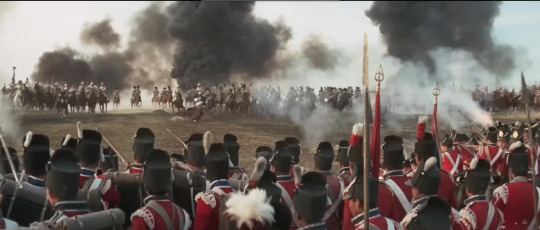
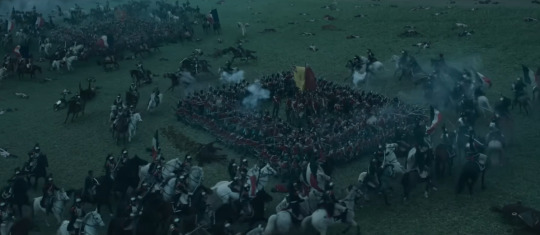
Despite a massive budget and cgi available the battles actually felt incredibly small. The Waterloo scene in particular felt like it was taking place on a patch of grass that was a 100 meters square, with two thin lines of French infantry advancing towards a relatively small group of British infantry dispersed within a couple meters of trenches, with the tents of their camp only meters directly behind that. It gave the entire thing the sense like it was a large reenactment society of maybe 200 people giving it their all, rather than 140.000. The 1970 Waterloo might be 50 years old but showed vastly, vastly more impressive scenes of huge formations of men, offering awe-inspiring cinematography compared to Scott's tiny Waterloo skirmish. I'm perfectly willing to accept disgustingly bad historical accuracy as long as the pictures are sufficiently pretty. They were not.
As a note, in the movie the British infantry inexplicably decides to walk forwards out of their fortified trenchline on the slope (complete with spikes) and form squares in front of it, instead of simply staying inside of their trenches.
There's a fucking sniper at Waterloo. Like, an infantryman with a rifle with a scope on it. He blows a golfball-sized hole in Napoleon's hat.
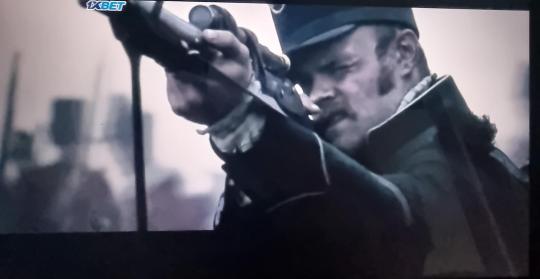
The Marshals - each colorful, fascinating characters many of whom would individually be worthy of their own movie - are less than background characters; I don't think any were even mentioned by name, and there's only two or three that are regularly seen on screen. Marshal Ney, famous, brave, tragic Ney, who has a very distinctive redhead appearance, was rendered completely unrecognizable by adding a moustache.
Phoenix's Napoleon has no charismatic presence whatsoever. Anyone who wasn't already reasonably familiar with Napoleon before seeing this movie would be dumbfounded why so many people followed him at all, or why upon his return from Elba thousands of soldiers sent to stop him simply deserted to his cause as soon as he approached. If you want to create a movie to deconstruct Napoleon from a brilliant national hero to a flawed man there are infinite ways to do so, and they chose the most sub-par by just making him kinda odd and insecure.
Napoleon's military genius is underexplored if not entirely absent from the movie, and to a large extent it simply feels like events are just kinda happening to him, especially with the way short disparate scenes are quickly strung together. One second we're in the aftermath of Austerlitz (1805), and two or three 1-minute scenes we're at the invasion of Russia (1812). Some of Napoleon's finest moments as a general are omitted from the film such as the Italian campaign, Jena-Auerstedt, and the six-day campaign of 1814 where Napoleon so thoroughly outgeneralled his opponent his tiny 30K man army inflicted nearly 30K casualties on enemy forces twice his size over the course of four battles.
Meanwhile his crowning achievement at Austerlitz is reduced to yelling thrice for hidden units to attack and then the entire enemy army flees onto an ice lake fit for a fantasy movie (just check out the ice scene from the 2004 King Arthur) and gets sunk by cannon fire. If you've seen the trailer you've seen almost the entire battle.
Huge parts of the movie are devoted to his marriage to Josephine, which I personally don't find terribly interesting to begin with, and historical events are contorted to be related to his marriage (such as ditching his army in Egypt because she's cheating on him), but it often felt to me like this storyline, such as it was, was firing in certain directions only to abruptly cut them off or let them go nowhere, and the movie seemed unsure whether it was the A-plot or the B-plot or a secret third thing.
Before I forget... not once but twice Napoleon is charging into the thick of the melee on horseback!!! First where he is at the very front of a cavalry charge at Borodino (the 30 seconds of it that we got, which were all in the trailer) and second near the end of Waterloo before making a run for it. And it's so patently absurd! It's like a WW1 movie with Kaiser Wilhelm personally storming the trenches or Emperor Hirohito flying a plane at Pearl Harbor. Napoleon demonstrated plenty of bravery in his life (such as when he was wounded by a bayonet at Toulon, or attempted to lead a charge at the bridge at Arcole) but the Emperor of the French was not at the fucking forefront of a massed cavalry charge with sabre in hand scything down infantrymen.
The movie ends with a card with casualtyfigures from a bunch of battles as if it's a sobering statement at the end of a Holocaust movie, so the Brits can remind you Napoleon was actually Hitler.
#napoleon movie#I've seen bad movies in my life but I've never been so disappointed by one#I wanted it to be good. And it was the opposite.
14 notes
·
View notes
Text
I saw the Napoleon movie at the cinema today and here are some of my thoughts (spoiler warning I guess?):
everything about this film was so unintentionally funny
not a single person was casted correctly (except for Vanessa Kirby as Josephine. I think she did a good job with a bad script)
I loved all the military uniforms
Paul Barras was so slay
can't believe that they had Junot at Toulon and didn't even include the iconic way that he met Napoleon
Thermidor was very lacklustre. I wish it had been more accurate to what actually happened because the real events were very dramatic
so sad that they erased Napoleon's friendship with Bonbon Robespierre. it would have made such a good tragic backstory
its weird how they include Napoleon and Josephine lying about their ages when they got married, but didn't state the reason why. because now it just looks like they were saying their actual ages.
Josephine's dogs were very cute, but I think that instead of having Napoleon play with one of the dogs there should have been a whole sequence of him being attacked by Fortuné every time Josephine turns her back
very sad at the Italian campaign erasure
I find it weird that Napoleon had short hair for Egypt and Brumaire because surely it would have made more sense for narrative purposes to have a scene of him cutting his hair short after becoming first consul to symbolise the change?
so mean of Napoleon to deny Junot his dessert
I'm actually so glad that Junot disappeared after Egypt because I doubt they would have been able to handle his mental illness and death with an appropriate amount of sensitivity
Brumaire was actually hilarious I was laughing so much when he fell down the stairs
thankfully there weren't as many cringy sex scenes as I thought there were from reading the reviews. but maybe that's because those scenes are in the directors cut and not the cinema version?
literally the only time we ever see Eugene and Hortense during Napoleon and Josephine's marriage is at the divorce. and they don't even say anything they just stand there looking awkward.
can't believe the iconic Tilsit kiss wasn't included
why was Tsar Alexander such a slutty Twink I'm not complaining though
Marie-Louise somehow looked like the exact opposite of historical Marie-Louise. the casting director wasn't even trying
poor Napoleon II only got about two seconds on screen time. come on after everything he went through he deserves at least one scene to play with his dad
can't believe they actually used the classic 'blue-grey Eastern Europe' filter on Russia
I am still laughing about how Napoleon said he wanted to spank Alexander
Waterloo felt so lacklustre for some reason? I feel like it should have been a lot more dramatic and theatrical to really convey how important the battle was
the bullet hole in Napoleon's hat at Waterloo looked so fake
WHY DID HE JUST FALL OF HIS CHAIR LIKE THAT AT THE END OF THE FILM LMAO
41 notes
·
View notes
Text

photo credit etsy
THE ROAD TO GLORY by F. Britten Austin, 1935
I checked out this book from the library. It costs $69.99 on etsy! That's ridiculous. I'm reading it and I like it. The first Italian campaign is going on. Young General Bonaparte is having his first victories with a ragtag army and colleagues like Berthier, Massena, Augereau, Murat, Joseph, Saliceti, et al. He is pining for Josephine. The author gets Napoleon pretty well IMO.
The only problem I have is that the author describes Berthier as ugly. He wasn't ugly! What the hell.
This writer wrote a lot of stories for magazines so he knows how to put a story together.
P.S. His son Paul has written Napoleonic books, I think they're nonfiction. I might have even read one...I did! I'm losing my mind. I wrote a review of it. I really pay little attention to the names of the authors. It's called 1815: The Return of Napoleon. Good book.
19 notes
·
View notes